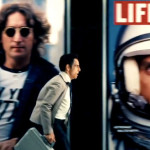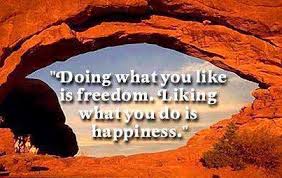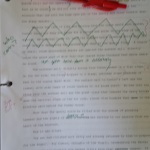What do you love?
Everyone needs a little passion.
The interesting people in story, and in life, are those who embrace what they love with passion. It might be a spouse, family, work, or hobbies. We love people who are excited about what they do or who they are. We respond to passion. Easy example is when people tell us about a recent book or movie that we haven’t read or seen yet.
If they say, “It was all right.” No matter what our previous anticipation level might have been, it now falls a notch.
What if they say, “It was awesome! I’m going to camp out at the movie theater right now and wait until it opens tomorrow so I can see it again”? We can’t help but absorb a little of that passion. It’s contagious and exhilarating.
People do need to find balance in their life, but that doesn’t mean they can’t still feel passion for each component that makes up who they are and what they do. They just can’t let that passion lead to excess and stupid decisions.
One of the most tragic things we see in literature and in life are people who won’t follow their passion. They won’t ask the girl on a date, won’t apply for their dream job, won’t take a chance and LIVE their lives. Thankfully, this character flaw is seen most often only at the beginning of a story to highlight a hero’s dramatic character arc.
A great example is Walter Mitty in The Secret Life of Walter Mitty. Here’s a guy who has buried his passions so deep, he has to escape life in lengthy ‘zoned out’ moments where he dreams of doing great things. He has shackled himself to a boring job and refused to live, even though he dreams of it. The story is beautifully told, includes breathtaking scenery, and excellent music as Walter begins to break out of the repressed life he’s lived for so long and embarks on an amazing adventure that changes everything. If you haven’t seen it, I highly recommend it.
so deep, he has to escape life in lengthy ‘zoned out’ moments where he dreams of doing great things. He has shackled himself to a boring job and refused to live, even though he dreams of it. The story is beautifully told, includes breathtaking scenery, and excellent music as Walter begins to break out of the repressed life he’s lived for so long and embarks on an amazing adventure that changes everything. If you haven’t seen it, I highly recommend it.
In real life, it can be hard sometimes to chase our dreams, to live passionately. Are we Walter Middy before or after the moment where he decides to live?
How many times do we hear someone say, “I’d love to do that!” Only to then banish the thought and turn away. If it’s not illegal or immoral or likely to prove fatal, maybe they should reconsider.
Are you holding back, suppressing your passion?
Fear of failure is often the cause. Sure, we might fail, but at least fail while trying. Failure is a way to learn so much, but society has made failure taboo. The problem is, life is full of failures. Why not fail while doing something we’re passionate about instead of failing at life because we lack the courage to try? Here’s what a few famous people had to say about failure:
“I can accept failure, everyone fails at something. But I can’t accept not trying.” (Michael Jordan)
“It’s fine to celebrate success but it is more important to heed the lessons of failure.” (Bill Gates)
“I have not failed. I’ve just found 10,000 ways that won’t work.” (Thomas Edison)
We don’t like stories of cowards, of those too repressed or afraid or timid to live. Usually in stories, cowards are either killed or, if they’re a main character, their initial cowardice is overcome as they rise to become a hero. There’s a good reason for that. Readers don’t buy stories that lack progression.
Not surprisingly, it was hard to find great examples of characters terminally afraid to live their lives, afraid to embrace their passions.
One example that came to mind for me is Pierre Gringoire, the struggling playwright in The Hunchback of Notre Dame who is saved by Esmeralda, but lacks the courage to do anything productive. He is about as completely useless a character as any I’ve ever read. I’ve hated him since I was first forced to read this dark, depressing book as a kid. Pierre refuses to fight for the beautiful woman who saved his life, refuses to fight for anything useful, and eventually slips away from all conflict, taking along Esmeralda’s pet goat, Djali, the only creature who seems capable of dealing with his pitiful life.
So be Walter, not Pierre, and embrace your passions.
What are you waiting for?



